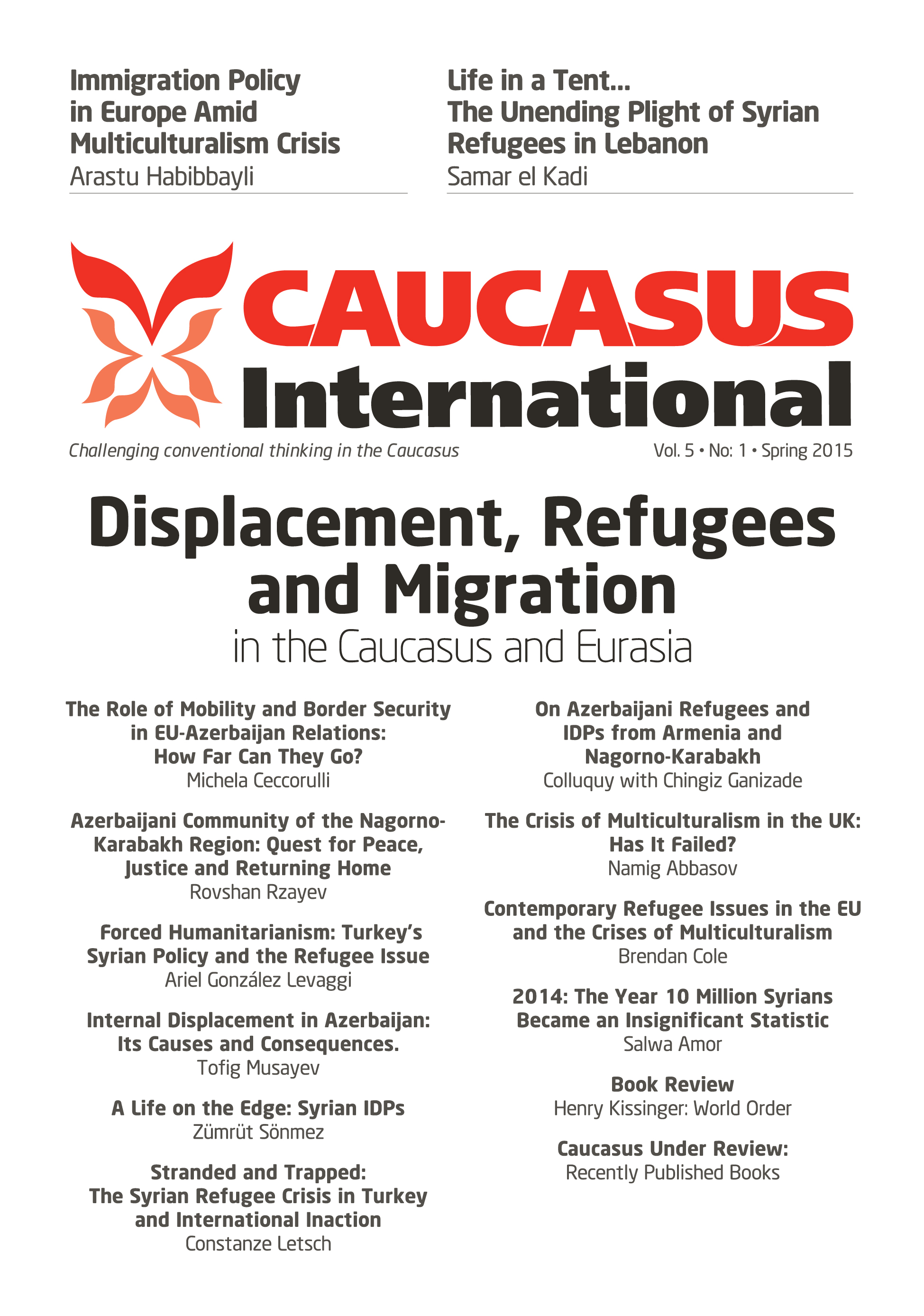Internal Displacement in Azerbaijan: Its Causes and Consequences. What the International Community Can and Must Do?
At the end of 1987, the Soviet Socialist Republic of Armenia (Armenian SSR) began to lay claim to the territory of the Nagorno-Karabakh autonomous oblast (NKAO) of the Soviet Socialist Republic of Azerbaijan (Azerbaijan SSR). Nationalistic demands marked the beginning of the assaults on the Azerbaijanis in both the NKAO and Armenia itself, soon leading to their expulsion. Shortly after the dissolution of the Soviet Union at the end of 1991 and the international recognition of both Armenia and Azerbaijan, armed hostilities and Armenian attacks against areas within Azerbaijan intensified. As a result, a significant part of Azerbaijan’s territory, including Nagorno-Karabakh and seven adjacent districts, were occupied by Armenia; thousands of people were killed or injured; hundreds of thousands of Azerbaijani citizens were forced to leave their homes. The UN Security Council and other international organizations have addressed the problem on a number of occasions. Since 1992 the Organization for Security and Cooperation in Europe has engaged in efforts to achieve a negotiated settlement of the conflict under the aegis of its 11-country Minsk Group, currently under the co-chairmanship of France, the Russian Federation and the United States. The Co-Chairs of the OSCE Minsk Group have proposed a set of core principles and elements, which, in their opinion, should form the basis for a comprehensive settlement of the conflict. The elements underlying the proposal of the mediators include, inter alia, the liberation of the occupied territories and the right of return for all internally displaced persons (IDPs) and refugees. The article examines the international documents that refer to the problem of internal displacement in Azerbaijan, its causes and consequences, and the rights of the uprooted population. It also raises the question of whether the right to return is a human right or a privilege of belligerents. The article concludes that the lack of agreement on political issues cannot be used as a pretext to prevent the return of IDPs to their homes and properties and that the de-occupation of Azerbaijani territories can in no way be considered or introduced as a compromise, and used as a bargaining chip in the conflict settlement process.
Latest news
- 03/17/2020 Call for Submission: “Non-Alignment Movement and Its Perspective in International Affairs”. Deadline: 1 July 2020 2625 views
Popular articles
- 02/24/2020 The Role of Irredentism in Russia’s Foreign Policy 2536 views
- 02/24/2020 Construction of sub-national identity vis-à-vis parent state: Gagauz case in Moldova 2218 views
- 02/24/2020 The Conflict in Ukraine - The Geopolitics of Separatism and Divergent Identities (Commentary) 2072 views
- 02/24/2020 The Role of the Soviet Past in Contemporary Georgia 2044 views





